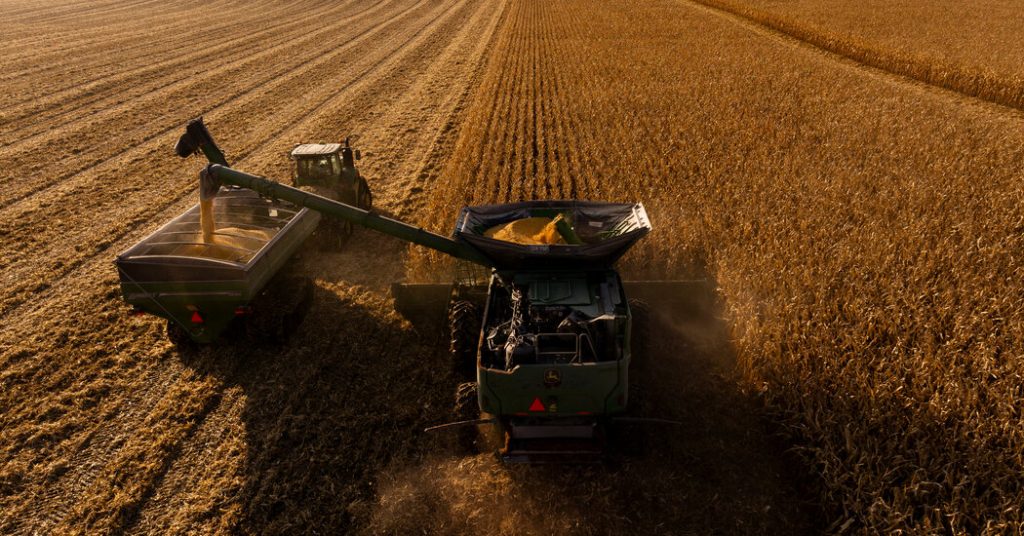The Biden administration issued new guidelines aiming to reduce greenhouse gas emissions in air travel by increasing the supply of sustainable aviation fuel. Jet fuel is primarily made from fossil fuels, contributing to the global aviation sector’s emissions. The proposed guidelines offer incentives for farmers to use climate-friendly practices when growing crops like corn or soy used in alternative fuels such as ethanol. The guidelines are part of President Biden’s 2022 Inflation Reduction Act, offering tax credits for sustainable aviation fuels that reduce greenhouse gas emissions by at least 50 percent.
Sustainable aviation fuel is currently blended into traditional jet fuel, but at a small percentage. The government aims to increase production to 3 billion gallons per year by 2030. Nearly 40 percent of U.S. corn production goes into ethanol production for gasoline, but uncertainty surrounding its carbon emissions and land use have prevented its inclusion in sustainable aviation fuel. To qualify for tax credits under the new guidelines, producers must utilize climate-friendly farming practices such as no-till farming and renewable energy sources in their processes.
The Biden administration introduced a pilot program to explore the use of corn ethanol as jet fuel, rewarding farmers who adopt environmental farming practices. The guidelines also set out similar requirements for soy production. While the government believes these practices will help reduce emissions from air travel, some environmental groups are skeptical about their effectiveness in combating climate change. The corn and ethanol industries are closely monitoring the guidelines to understand the level of adaptation required to take advantage of the tax credits.
Building a sustainable aviation fuel supply chain will take years, but the Biden administration aims to satisfy all domestic jet fuel demand with sustainable fuel by 2050. Europe is slightly ahead in mandating blends of sustainable aviation fuel. Major airlines and other organizations have formed a partnership to scale up sustainable aviation fuel production, recognizing the importance of ethanol in decarbonizing the aviation industry. With electric vehicle usage impacting gasoline demand, ethanol producers are seeking new outlets for their product.
The guidelines for sustainable aviation fuel tax credits include requirements for producers to use climate-friendly farming practices and renewable energy sources in their processes. The government hopes that these incentives will help increase the production of low-carbon fuels and reduce emissions in the aviation sector. However, concerns remain about the effectiveness of these practices in combatting climate change. The Biden administration continues to work towards increasing the supply of sustainable aviation fuel and meeting ambitious production targets by 2030 and 2050.


